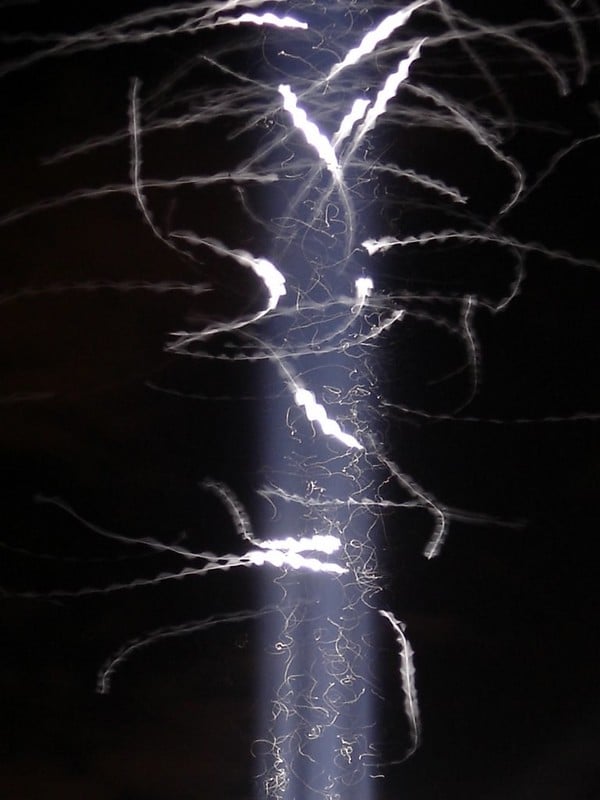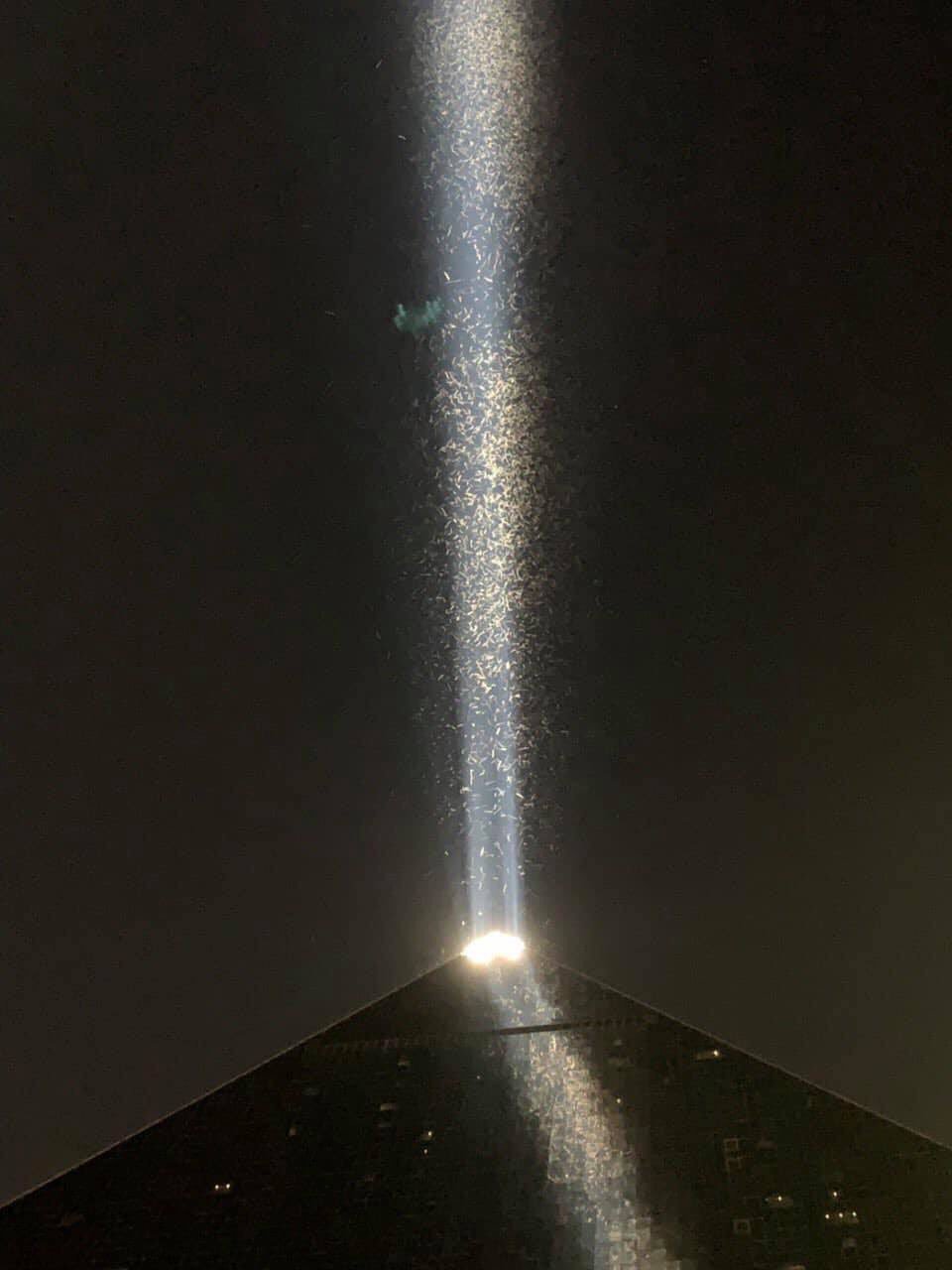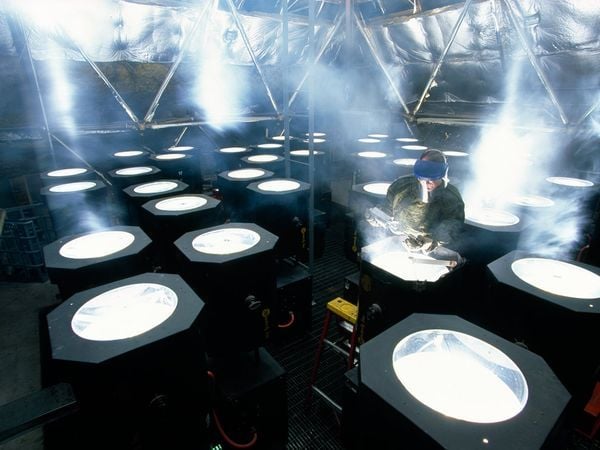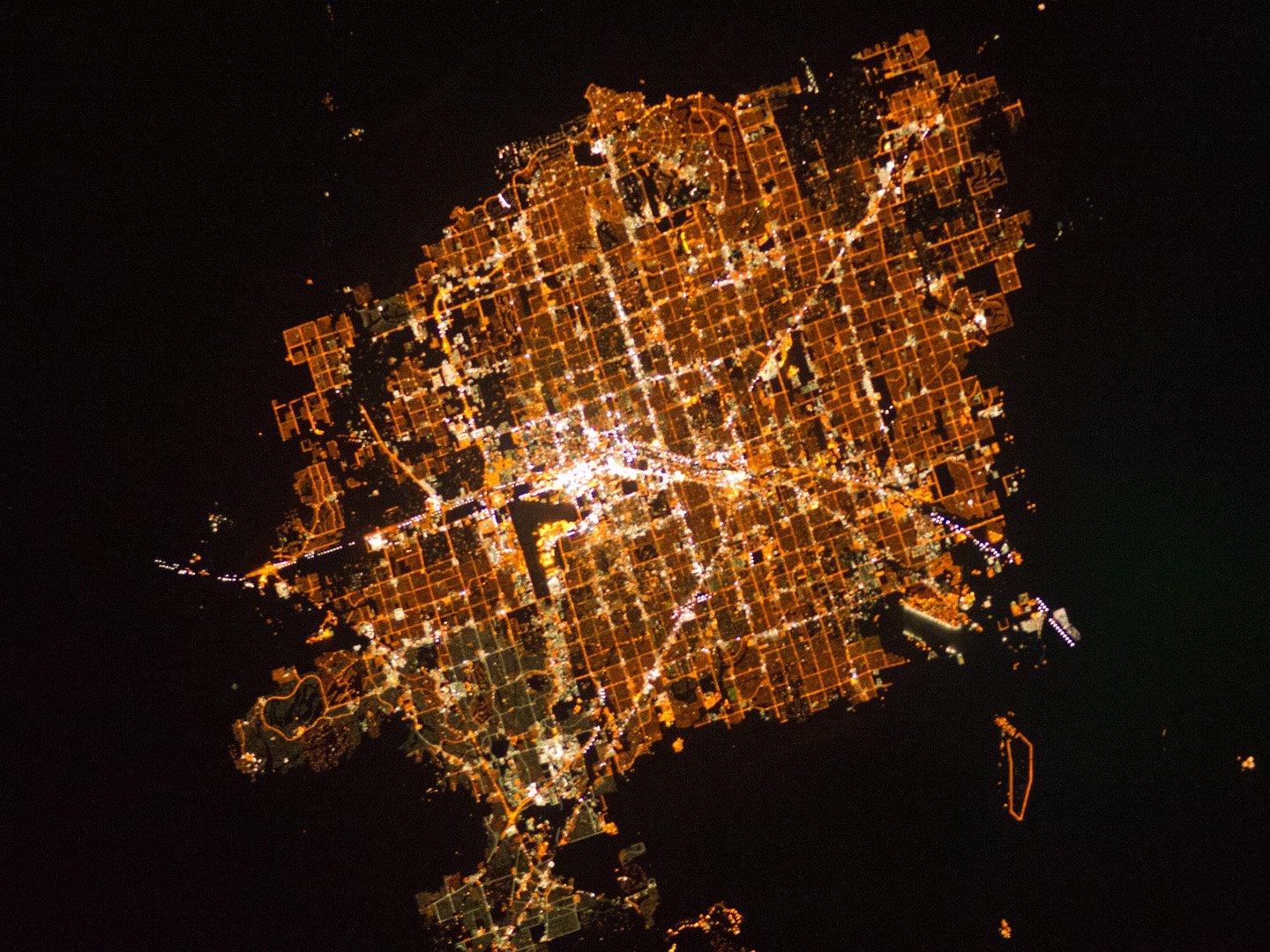Unveiled during the early 1990s, Luxor Las Vegas swiftly became an iconic part of the Strip thanks to its instantly recognizable pyramid shape.
The building even stood as the tallest casino on the strip, although it’s since lost this title.
However, it wasn’t just the size and shape of the building that made the Luxor so widely loved.
Instead, it was thanks to the Luxor sky beam, an incredibly
bright beam of light that shoots from the tip of the pyramid into the sky above.
Often called the world’s brightest light, the sky beam has drawn people from all over the world to come and see it.
But it isn’t just humans that the sky beam attracts…
The Sky Beam Has Created
Its Very Own Ecosystem
Anyone that has ever gone camping will know that bright
lights attract bugs, moths in particular.
As the brightest light in the world, it should come as no surprise that the Luxor sky beam attracts bugs in their thousands.
The massive swarms of flying critters are mostly sphinx moths,
which Luxor staff have reported to give the beam a golden glow.
With so many bugs in one place it was only a matter of time before
they attracted Nevada’s hungry bat population.
Now there are so many bats in the air that tourists end up mistaking them for UFOs.
Owls, who as nocturnal hunters must be rather confused by the bright lights of Las Vegas in general, are natural predators for bats.
So, owls have also descended on the sky beam, getting their own feast, and adding even more UFO fever when they are caught in the light.

In 2019, there was even a swarm of migrating grasshoppers in Vegas that also added to the Luxor sky beam’s ecosystem.

Of course, all these flying creatures can cause problems if they manage to get into the lights themselves.
If they land on the actual lamp, they instantly cook and can cause the glass to crack.
No wonder the staff at the Luxor keep all the windows closed.
How Bright Is The Sky Beam?
The sky beam is a 42.3 billion candela tunnel of light.
To put that into perspective, the beam thrown by a modern lighthouse is equivalent to about 1 million candela.
In other words, the Luxor sky beam is brighter than 42,000 lighthouses combined.
So bright is the sky beam that on a clear night it is visible
from 275 miles away.
Some people wrongly believe that the beam is made by a single
giant flood light, plugged into the top of the Luxor.
In fact, the light is powered by 39 xenon lights with 7,000-watt bulbs that you certainly can’t pick up at your local store.

The beams from these different lights are then combined using a number of mirrors to create the sky beam.
Because of the heat from the lamps and mirrors, workers can’t
do any maintenance on the setup while the system is on.
Temperatures have been measured at 500 degrees Fahrenheit just above the surface of the lamp, while the workers’ platform 25 feet above the lights hits 300 degrees when the lights are on.
The sky beam is known as the brightest light on Earth, but it has actually been dimmed since it was first turned on in 1993.
In an effort to save energy and money, only half of the lamps are used every night.
A Light So Bright It’s Used By Pilots
For the most part, aeronautical equipment is so advanced that pilots do very little manual navigation.
But sometimes, aviation requires pilots to figure out where they are, which is why they use literal landmarks to find their way.
These could be skylines or natural formations, but one of the
most popular throughout the southwest of the United States is the sky beam.
Because it’s visible from so far away, pilots can use the beam of light as a means of orientation.
Plus, it is fun to point out to passengers flying in the area at night.
Despite being extremely bright, the Luxor sky beam can’t be seen from space.
This is because, at that distance, all the lights of the Las Vegas strip blend together, meaning that picking it out with the naked eye is impossible.
However, special cameras can just about manage it.

The Sky Beam‘s Running Costs
Back in 1993, it reportedly cost the hotel $1 million per year to keep
the massive light on.
However, with the Luxor now only using half the lights,
they’re saving quite a bit of energy as well as money.
No one knows exactly how much energy or money this effort saves, but the last numbers available suggest that the sky beam costs $51 per hour to run.
The shortest nights are the cheapest, which means a month
like July would cost the least to run the sky beam.
With an estimated 300 hours of darkness in July in Las Vegas, the hotel spends about $15,300 to keep the sky beam on, going up to $22,700 during the darker months of the year.
